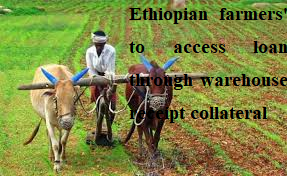
BY DANIEL ALEMAYEHU
Under the umbrella of the United Nations, countries have set unified goals to bring socio economic development. Currently, the world is trying to achieve Agenda 2030 under Sustainable Development Goals (SDGs). Its ultimate objective is to create a globe favorable to all human kind.
Similarly, African continent has set its own goals cascaded from Agenda 2063 which aims to make the continent a better place for its citizens. Accordingly, Ethiopia set national goals in different times. Currently, the nation is trying to achieve its ‘Ten Years Perspective Development Plan: A pathway to Prosperity’. Under this national goal, the Government of Ethiopia is exerting its best efforts to uplift the country to the place where it deserves. Among these goals, structural transformation is a talking point in the present climate.
Last week, the Ethiopian Press Agency organized the 7th session of ‘About Ethiopia’ dubbed ‘Structural Economic Transformation’ in Adama town. On the event, as usual, there were photo exhibition and panel discussion. Respected guests and paper presenters along with responsible stakeholders have attended the event and shared their opinions.
On the panel discussion, Planning and Development Minister, Fitsum Assefa (PhD) presented her paper for discussion. She said that Ethiopia has registered a 9.5 percent economic growth on average from 2003 up to 2010 Ethiopian fiscal years. However, the economic development has not continued in a stable way because it was not supported by structural reform.
Fitsum noted that the nation’s previously registered economic growth was based on foreign loans and state owned projects’ performance. It was not supported by structural economic transformation in a gradual manner. As a result, problems encountered the growth so that it could not maintain its pace.
Therefore, to change the trend, the Minister disclosed that numerous actions have been taken to achieve the intended goal from the first days of the reform. “If we make it achievable, we can score tangible changes,” the minister said.
It is the fact that Ethiopia spends much for consumable commodities rather than capital goods. When the economic transformation is implemented, the nation’s growth trend is changed and more money was allocated for capital budget, Fitsum elaborated.
The expected economic development will be realistic if and only if it is implemented in proper manner aiming at attaining structural change and now it has been put in place.
She further said that after the ten years perspective economic growth plan implemented, some positive changes have been signaled both in the manufacturing and service sector. Though the service sector is showing progress, it is not as it was expected. There needs to work on refining it, the minister suggested.
By the end of the ten years development plan, the agriculture’s share to the Gross Domestic Production will be reduced from 32 percent to 22. The agriculture production will be transformed through value addition and the abundant agricultural labor also will be shifted to none- farming sector. Industry share will rise to 35.9 percent and the manufacturing sector will have 17.2 percent share.
State Minister of Finance, Eyob Tekalign (PhD) also presented his paper and said that the government has gone many steps in implementing the economic transformation, and it has started registering tangible results.
The state minister explained that the government preferred to implement structural economic transformation in seven main steps.
Among those steps, as to Eyob, the first was improving the skewed perception that people have towards the economic transformation. But this negative perception and attitude towards the transformation was gradually improved and changed to a positive way.
In addition, it is witnessed that it is hard to apply economic transformation without healthy political economy. In this regard, equal distribution and allocation of resources has been implemented impartially among regional states and institutions, Eyob added. In countries like Ethiopia with multi nations and nationalities, it is impossible to achieve economic development by ignoring the respect of political rights.
Likewise, the Minister noted that the private sector is the main actor in the process of structural economic transformation. The role of investors and the government has ample contribution on the economy. Accordingly, changes are witnessed in improving the relation of the aforementioned actors, the State Minister said.
In this regard, the space given to the private sector will be broadening until it becomes the main actor. On the other hand, it will put directions and other assistances in line with exerting its own efforts, Eyob added.
On the occasion, an Ethiopian Investor and BK Import Export and Associates CEO, Belayneh Kindie also presented his study paper. He said that as a nation, stakeholders should not concentrate to tap only on the good opportunities. Rather, it would be better to use the challenges as opportunities. “If we love our country, we should face the challenges and overcome them,” Belayneh added.
He has listed the natural resources and man-made infrastructure which attract both local and foreign investment. The investor shared his experience regarding tapping opportunities. Better climate, sufficient water resources, untapped arable land, youth labor, and rapid accomplishment of projects can be mentioned as positive opportunities for investment.
On the other hand, the investor mentioned that there are challenges too. He listed that technology constraint, shortage of foreign currency to open letter of credit, and inaccessible finance for agriculture investment are some of the obstacles observed.
In order to overcome those hurdles, ensuring peace and security takes the lion share. If the peace is restored, international loan providers will be attracted so that overcoming financial problems will be possible, Belayneh disclosed.
As to Belayneh, in order to attract investors, nation’s policies should also be amended; corruption and misconduct should be avoided. Besides, bringing all parties to the negotiation should be taken as tool to bring political stability, the investor added.
On the panel discussion, participants have also forwarded their opinions and other multiple questions to the presenters and responsible panelists.
Planning and Development Minister Fitsum Assefa (PhD) on her concluding speech stressed that the reform has kept registering successes regardless of pressures from in and out. She also said that the opinion forwarded by the audience that the government did not pay the necessary attention to the agriculture sector is baseless and the reality on the ground is different. The allocated budget to the sector has brought tangible result on poverty reduction. The government understands it, and that is why the support and focus is getting increased year by year.
Production and productivity have been elevated. A simple illustration is that allowing duty free import of machineries used for mechanization farming, the minister explained.
Fitsum also gave response for question regarding nation’s land policy. She responded that to change the land policy, it is not the mandate of a single bureau; rather it needs stakeholders’ participation. Besides, various actions are taken such as providing certificate to farmers to ensure their rights to use the land so that they can borrow money from banks using the plot as collateral. In the coming ten years, the nations will find itself in the right structural economic transformation, the Minister said.
The Finance State Minister, Eyob Tekalign on his part said that in order to build strong economy, attention will be given to the flourishing of private sector and the implementation of the plan on the sector has brought tangible result in that regard. A major shift was applied on the agriculture sector; that is why the sector has obtained higher budget in the current fiscal year.
Regarding the shortage of foreign currency, the State Minister elaborated that the government will implement soon a system that can alleviate the problem. This problem will no longer be a constraint for the business activities. Similarly, the homegrown economic reform is the shield when the country is defending itself from external pressures, Eyob mentioned.
To uplift Ethiopia to the better, Eyob said that the private sector is the main alliance for the development. The government also acts upon its own commitments to show investors to build confidence. This is how the government is working.
Belayneh Kindie on his part noted that all of the stakeholders should stand in solidarity and work together to support the nation in transforming the economy.
THE ETHIOPIAN HERALD WEDNESDAY 3 AUGUST 2022





